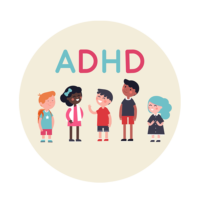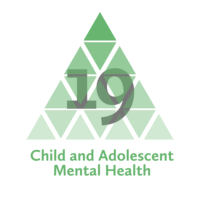Qualitative study
-

Let’s talk about ADHD!
Much of the available information on ADHD is aimed at parents and carers rather than children. The ADHD Animation Research Team at Cardiff university talk about the medium for addressing children.
Read more -

Multi-disciplinary teams are needed to sensitively diagnose autism in Deaf children
An ethnographic study of NHS professionals, who diagnose autism in Deaf children, finds that recognizing the intersections between mental health and Deaf culture is essential for healthcare professionals to make sensitive diagnoses.
Read more -

Most cited CAMH paper #19 of 25: Young People’s Experience of ADHD and Stimulant Medication: A Qualitative Study for the NICE Guideline
Ilina Singh, Tim Kendall, Clare Taylor, Alex Mears, Chris Hollis, Martin Batty, Sinead Keenan.
Read more
Key Practitioner Message includes; Close friendships are important to young people with ADHD and are sometimes used to protect them from bullying and in other difficult situations. -

Intolerance of uncertainty underlies demand avoidance behaviours in children
Researchers in Newcastle have conducted one of the first studies to conceptualise and understand the behavioural features of the pathological demand avoidance (PDA) profile — a proposed subtype of autism spectrum disorder (ASD) — in children and young people.
Read more -

The experiences of healthcare transitions between child and adult services for young people with attention deficit hyperactivity disorder: a review of evidence
Attention deficit hyperactivity disorder (ADHD) is characterised by hyperactivity, inattention and impulsivity. It affects around 5% of children, and can be a long term condition, with research showing that up to two thirds of young people with ADHD will continue to experience symptoms into adulthood. However, many young people with ongoing healthcare needs do not make the necessary transition from child to adult mental health services.
Read more -

Children’s Understanding of Depression
Depression is a mental illness that affects children and especially adolescents, however little is known about how children and adolescents understand depression. Gaining an understanding of how children perceive illness can facilitate effective communication with health professionals and children’s active involvement in decision-making about their health.
Read more -

Young people’s lived experience of Obsessive Compulsive Disorder
How do young people really experience living with Obsessive Compulsive Disorder (OCD)? What are young people’s understanding of their development of OCD and is there a link to trauma? How do other people’s reactions to the OCD affect the young people? How do young people really feel about the help for OCD in the United Kingdom?
Read more -

Expressed emotion varies with eating disorder diagnosis
Unique patterns of expressed emotion characterize communication within families with children affected by eating disorders, according to new research. Researchers across the USA recruited 215 adolescents (aged 12-19 years) with eating disorders and their families, and asked them to complete the Standardized Clinical Family Interview.
Read more -

Navigating an unfamiliar world: how parents of young people that self-harm experience support and treatment
Participants described a range of reactions to treatment and support for themselves and the young person. We identified three main themes: attitudes towards the young person, practical aspects of help and the need for parents to be involved.
Read more -

A harsh parenting team?
Guest blog from Dr Rachel Latham, Postdoctoral Research Associate, King’s College London on whether high quality coparenting can buffer children’s behaviour from the negative impact of harsh parenting.
Read more